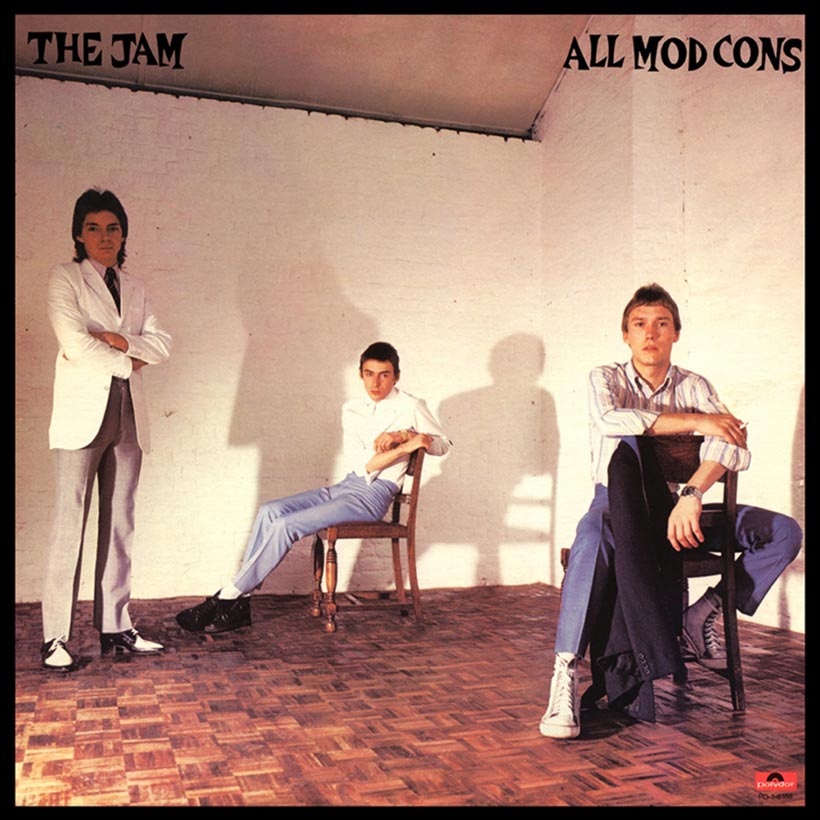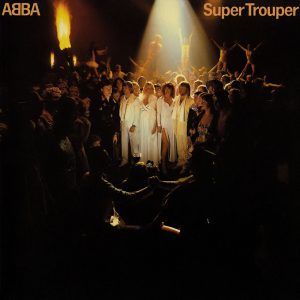Unlike contemporaries such as Sex Pistols and The Clash, The Jam initially spent several years honing their craft on the small club circuit, so when they burst onto the scene early in 1977, they blazed with passion and purpose. In just five short years, with albums the likes of In The City, All Mod Cons and Sound Affects, the group spearheaded a mod revival that still reverberates today.
Seemingly at odds with punk’s “Year Zero” mentality, the Rickenbacker-wielding, Surrey-based trio didn’t immediately slot in with their peers. Though acceptably loud and aggressive, the band’s music openly betrayed their collective love of mod-inclined forbears The Who and The Kinks, while their sharp black stage suits were anathema to young punks sporting safety pins, ripped T-shirts, and bondage trousers.
Listen to All Mod Cons on Apple Music and Spotify.
Nonetheless, the kids dug The Jam from the word go. After the band signed to Polydor Records, their debut LP, In The City, rose briskly to No.20 in the UK charts in May 1977; its swift follow-up, November ’77’s This Is The Modern World, climbed to No.22 and went silver. Yet while This Is The Modern World was superficially a success, it was largely savaged by the press and, during the first half of 1978, The Jam were plunged into crisis. Frontman and primary songsmith Paul Weller was struck down with writer’s block, while Polydor rejected the band’s next set of demos. After Weller eventually finished a fresh batch of songs, The Jam were forced to complete their third LP, All Mod Cons, with engineer Vic Coppersmith-Heaven, after producer Chris Parry was sacked during the fraught initial sessions.
Triumph ultimately sprang from adversity, however, and fans bagged an exciting preview of the imminent All Mod Cons when the LP’s superb lead single, “Down In The Tube Station At Midnight,” was released in October 1978. Buoyed by an intricate Bruce Foxton bassline and Weller’s vivid, narrative-style lyric bemoaning the rise in right-wing violence, the song was effectively The Jam’s first truly great 45 and it rapidly re-introduced the band to the British Top 40, where it peaked at No.15.
Issued just weeks later, on 3 November 1978, the pivotal All Mod Cons more than fulfilled “… Tube Station”’s promise. Tracks such as “‘A’ Bomb In Wardour Street” and the caustic, stardom-related “To Be Someone (Didn’t We Have A Nice Time)” were laced with the band’s hallmark nostril-flaring aggression, but this was tempered by a rapidly flourishing maturity in Weller’s songwriting abilities, which ensured that The Jam could now deliver material as brave and diverse as the Revolver-style psychedelia of “In The Crowd,” the bittersweet “It’s Too Bad” and the wistful, Nick Drake-esque “English Rose.”
Championed by fans and critics alike, the album hit Gold status, shot to No.6 in the UK Top 40, and scooped the New Musical Express’ prestigious Album Of The Year award. Its success was integral to The Jam outstripping punk and embarking on a lengthy tussle with the mainstream which, a mere 18 months later, yielded their first British No.1, courtesy of “Going Underground.”




